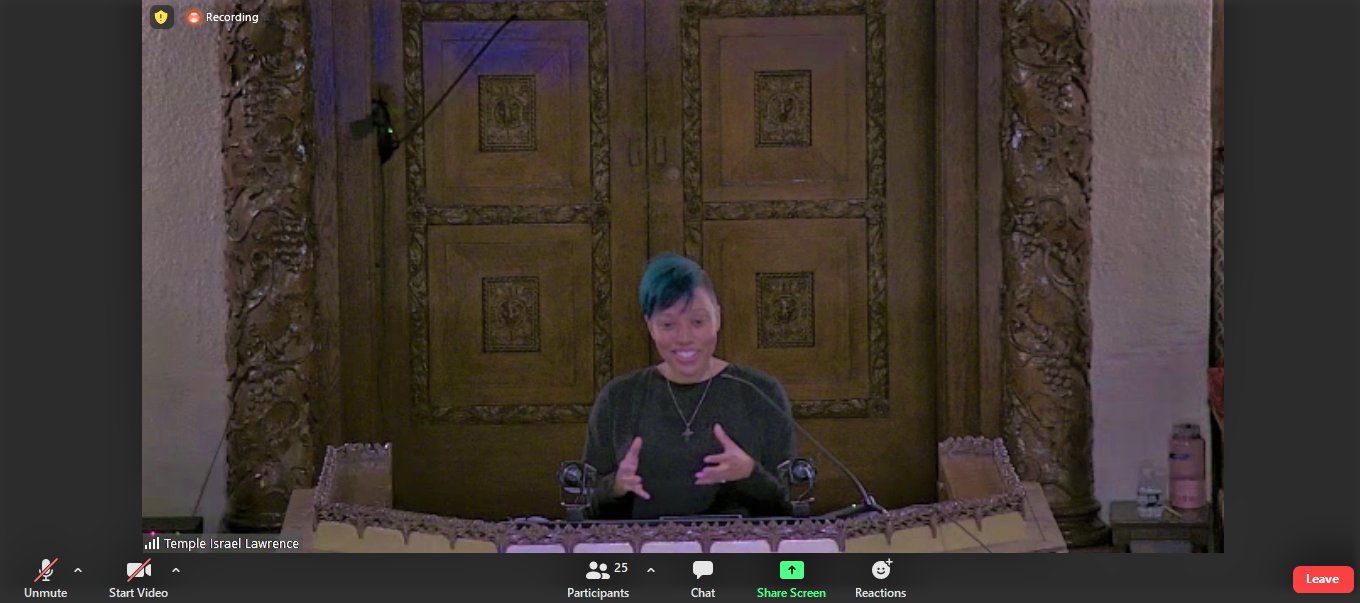From Far Rockaway to Lawrence, connecting Jews, Christians on Thanksgiving
To continue the connective tissue between diverse religions, Temple Israel of Lawrence and First Presbyterian Church of Far Rockaway once again joined forces at the 103rd annual Thanksgiving Interfaith Service that the Lawrence synagogue has held.
This year was more personal as there were people in the shul and others joined in over Zoom because of the continuing coronavirus pandemic.
The event started more than a century ago, on the first Thanksgiving following the end of World War 1, as an act of unity, healing, hope, and solidarity between Americans of all faiths, Temple Israel Rabbi Erik Uriarte said.
“The need for different communities coming together and helping each other through this period of divisiveness and pandemic is as necessary now as it was 103 years ago,” Dr. Douglas Segan, president of Temple Israel, said. “To befriend and understand folks who have different cultures and religions as our own,” has a strong impact on the community, which helps the world be more understanding, Segan added.
The Nov. 23 service was led by Uriarte and First Presbyterian Rev. Aqueelah Ligonde. Both religious leaders opened the joint service with an interfaith thanksgiving prayer for the guidance and protection of those in need and those helping the needy, for service men and women, the protection of the nation and guidance towards peace, and for an overall life of cheerfulness.
During the service, Uriarte recognized the struggles of Jewish, Black and Indigenous people. He acknowledged that the groups’ individual experiences of bigotry, intolerance, bias and in the case of Indigenous people, loss and violence, are different, yet there is an understanding between the communities that is a strong foundation for connection and worship.
When Ligonde spoke, it was bittersweet, she said, as it was her last time officially preaching as a transitional pastor. She shared a story about her grandmother teaching herself and her own brother thankfulness in everyday life and in faith.
“She made it clear that being thankful was a choice,” Ligonde said. “We can choose every day to be thankful, or to grumble about what we don’t have,” adding that people can make thankfulness an easy choice while reminding themselves of God’s faithfulness in themselves and others. “We can begin by making gratitude an everyday habit,” she said. “Each day can be filled with an attitude of gratitude-checkup.”
This checkup involves three, every day, perspective-altering challenges from Ligonde: start your day with a specific song that makes you happy, thank someone unexpecting, and make gratitude the way you end your day.
Although Thanksgiving is not a tradition intimately rooted in the Torah, a holy book on which both Jewish and Christian teachings are based upon, “the similarities are pretty profound,” Uriarte said.
“Whether we are Jews or whether we are fellow travelers who read and are inspired out of the same books, we have this tradition of gathering, of sharing what we are thankful for, of remembering who we are,” he said, “that we are people that should give thanks, not to only ask for the things we need and want, but to also recognize when we are in a good place, to share that happiness because happiness is infectious.”

 45.0°,
Partly Cloudy
45.0°,
Partly Cloudy 




